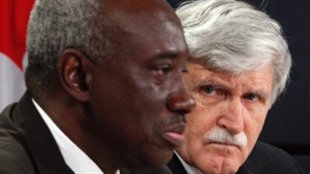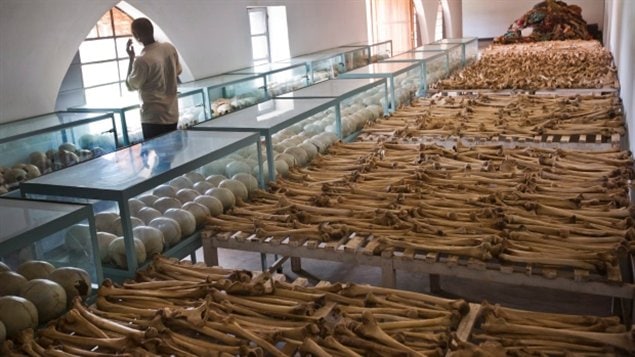Several of the 13 Canadians who were part of the United Nations Assistance Mission for Rwanda are meeting in Ottawa today to mark the anniversary of the Rwandan massacre.
The killing started after President Juvenal Habyarimana died in a plane crash on April 6, 1994. Before it was over more than 800,000 people had perished.

Trauma persists
An estimated quarter of Rwandans continue to suffer psychological effects from the horror and the Canadians who were there did not escape unscathed. Maj. Luc Racine suffered from post-traumatic stress disorder and killed himself in 2008.
Canadian Major General Romeo Dallaire headed the peacekeeping mission in 1994 and pleaded with the United Nations for backup which never came. The massacre and his inability to stop it haunted him. After returning home, he too attempted suicide but survived and went on to write a book about the horror. He also set an example by speaking openly about PTSD, a subject that had been taboo in the Canadian military and is still a difficult one.
Serving with Dallaire was said Major Brent Beardsley, who talked about “… an overpowering stench of death.” He developed symptoms of trauma in 2000 while training other soldiers when the scenarios became too realistic for him to bear. “Eventually one day I just got up and I couldn’t put my boots on,” he said. “I reached down to put on my boots and I just couldn’t do it anymore.”
For Jean-Yves St-Denis, the meeting with other soldiers who were in Rwanda means closure and “the passing of time and understanding where we have been and catching up with each other. Remembering those who pass away, and telling them, as a group, goodbye and they will be remembered.”







For reasons beyond our control, and for an undetermined period of time, our comment section is now closed. However, our social networks remain open to your contributions.